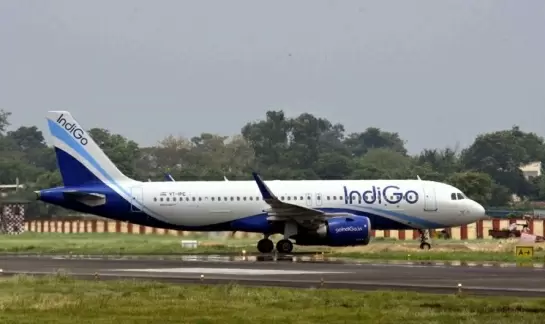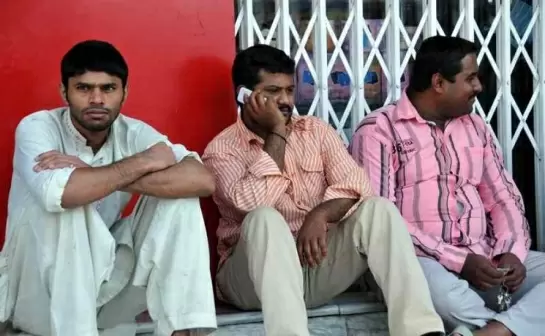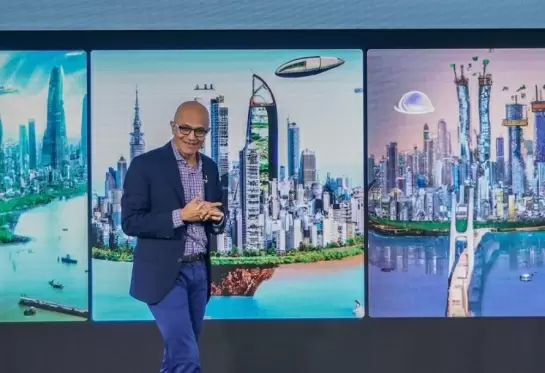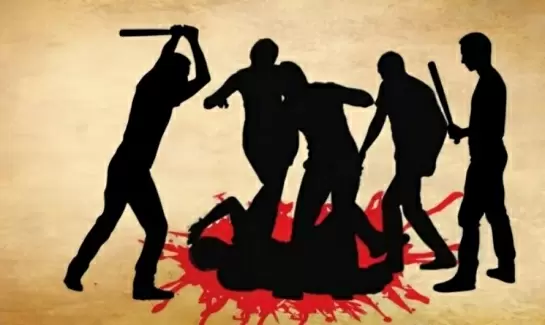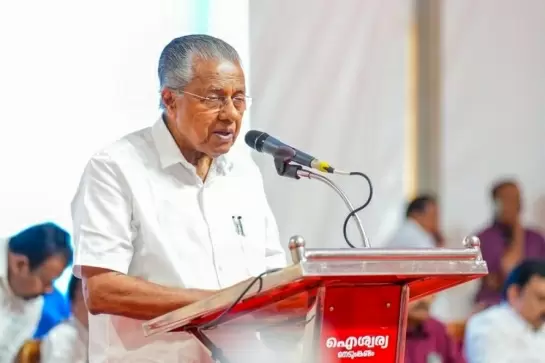'Focus of development must be on bottom 25% of population'
14-September-2019
Congress leader Shashi Tharoor has emphasised the need to bring the marginalised into the fold of the growth story of India by asserting that the focus of development must be on the bottom 25 per cent of the population.
In his address on 'India in Transition: Midnight to the Millennium and Beyond', Tharoor pointed out that "The magic of the market will not appeal to those who cannot afford to enter the marketplace. You need to give them some help, to become consumers and be a part of the growth story. They are completely left out of our narrative and that is something we simply can't afford to forget."
Tharoor was delivering the 10th Jindal Global Distinguished Lecture at the O.P. Jindal Global University (JGU) in Sonipat.
Stressing the importance of the role of youth and its leadership, Tharoor said, "We have to overcome our poverty. We have to deal with the hardware of development, the ports, the roads, the airports, all the infrastructural progress we need to make, and the software of development, the human capital, the need for the ordinary person in India to be able to have a couple of square meals a day, to be able to send his or her children to a decent school, and to aspire to work a job that will give them opportunities in their lives to transform themselves. We have to tackle and end corruption."
Referring to contemporary challenges, Tharoor said, "We have trained world-class scientists and engineers, but 431 million of our compatriots are illiterate, and we also have more children who have not seen the inside of a school than any other country in the world does. We have 4.3 million child labourers, and 40 per cent of the children in our government schools drop out by the eighth standard. We have 487 million in the workforce but more than two-thirds of our employers are struggling to find employable workers. In India, only 2.3 per cent of the workforce has received training in formal skills in comparison to 52 per cent in the US and 68 per cent in the UK."
Pointing out that the internet is an arena full of opportunities, but it remains out of reach for most Indians, Tharoor emphasised the need to provide Wi-Fi connectivity up to the village level and also increasing the average internet connection speed in India to global standards.
Tharoor said, "We are still a country where we haven't provided the common man with basic needs like roti, kapda and makaan. We should not forget that these basic demands grew to include bijli, sadak, pani and subsequently to kitaab, rozgar and perhaps broadband internet access today. Young India has to find a way for the marginalised and poor for human and social development, ensuring two square meals a day, the ability to send their children to school and aspire to work."
"The recent change in public discourse about Indianess is dangerous. The notion of majority and minority is fundamentally un-Indian and fails to reflect the real nature of our society. The suggestion that only a Hindu, only a certain kind of Hindu, can be an authentic Indian, is an affront to the very premise of Indian nationalism," said Tharoor.
He expressed serious concern over the culture that has now enveloped the country. "An India that denies itself to some of us could end up being denied to all...As the past is used by some to haunt the present, the cycle of violence goes on, spawning new hostages to history, ensuring that future generations will be taught new wrongs. The reduction of any group of Indians to second-class status in their homeland is unthinkable. It would be a second partition. A partition of the Indian soul would be as bad as a partition of the Indian soil."
"During the war with Pakistan in 1971, the Indian Air Force in the Northern sector was commanded by a Muslim, that the Param Vir Chakra in 1965 was won by a Muslim soldier in that intense war. Where do some people get the idea that they can define Indian nationhood, belonging, sense of sacrifice to this country on the basis of religion? Don't let anybody tell you that you don't belong in this country, every religion has a claim on the idea of India, on the essence of what India is all about," he said.
Talking of the demographic dividend of India, Tharoor told the youth to build a better India for all. "You represent a potentially dynamic, energetic, youthful population that could be the engine of the world, when the rest of the world is ageing. You must be among those who say we can do it right, we can do the right thing, and we can take India forward. You will have on your shoulders the future of our Republic. You will think globally but you will also look towards India, whether new India or old India, it should be an India that you can help reshape into a better India for all."
He also urged the young minds to develop, maintain and work in an open and inclusive society. "All of you have is a duty to ensure that this journey takes place in an open and inclusive society, in a rich and diverse and plural civilization, one that is open to the contention of ideas and interests within it, unafraid of the prowess or the products of the outside world, wedded to the democratic pluralism that is India's greatest strength and determined to liberate and fulfil the creative energies of its people."
Concluding his lecture, he extolled the students to have faith and believe in the future of this fast-paced nation. "We have seen many a dark night in the history of India including, in the very recent past. Dawn will come. Let's be faithful to our founding values, let us conquer the challenges towards a truly better India. Let us build an India that will truly shine and shine for all."IANS
Heavy Rains Raise Vaigai Dam Level; Flood Alert Sounded in Theni District
Ashwini Vaishnaw: Data Is the New Oil, Data Centres Are the New Refineries
Major Tragedy Averted as Fire Erupts in AC Coach of Amritsar–Saharsa Train
RSS Is Like a Diamond, It Shines When Struck: Karnataka LoP R. Ashoka
Prime Accused Unnikrishnan Potti Arrested in Sabarimala Gold Theft Case





